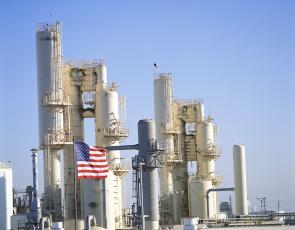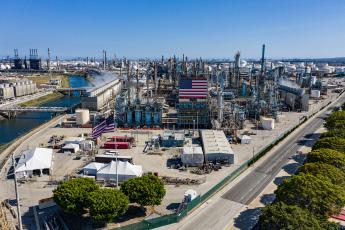*This blog originally appeared in The Hill on 12/13/17
Negotiations to modernize the North American Free Trade Agreement (NAFTA) are a chance to boost the competitiveness of U.S. companies in Canada and Mexico and solidify the preeminent role U.S. refiners and petrochemicals producers play in enabling global transportation and manufacturing. A smart modernization of NAFTA would amplify trilateral trade benefits that have accrued for so many economic sectors since the agreement took effect in 1994.
Few industries better illustrate this than American fuel and petrochemical manufacturers. Today, these industries are among the largest contributors to GDP, supporting more than 3 million U.S. jobs and contributing nearly $570 billion to the economy each year. The expansion of free trade across North America has put us on a path toward energy independence by stimulating billions of dollars in new capital investment, helping keep energy prices affordable for consumers, providing more well-paying jobs, and creating space for businesses to innovate.
Our energy trade relationships with Canada and Mexico made possible by NAFTA have helped the United States become the world’s largest refiner, home to 20 percent of global refining capacity. Canada and Mexico supply nearly half of all U.S. crude imports, loosening the grip that the OPEC cartel once had over our country. Indeed, today, Canada supplies us with more oil than all the OPEC countries combined.
NAFTA has also opened markets for refined petroleum and petrochemical products. Combined, exports of petroleum products to Mexico and Canada have gone from essentially zero in 1995 to more than 1.4 million barrels per day. That’s about 7 percent of our total production and about a third of our exports just to those two countries. In fact, Mexico is the largest buyer of U.S. petroleum products, with energy accounting for almost 20 percent of U.S. trade with Mexico.
The story for chemicals is similar. Trade in chemicals more than tripled since NAFTA was enacted in 1994.
Increased trade has spurred hiring. U.S. demand for skilled workers — from electricians and pipefitters to boiler makers and welders — is expected to grow 12 percent by 2024 thanks to $185 billion in committed investment in the fuels and petrochemical manufacturing industries.
The industry’s ability to sustain this momentum — and build on existing progress — is dependent on the strength of the United States’ relationship with Canada and Mexico, our two largest energy-trading partners. As our policymakers assess ways to modernize the agreement, I urge them to weigh the current cohesiveness of the North American commodities market. Our policies should deepen economic ties, not give up gains that could leave businesses and consumers worse off.
Efforts to modernize NAFTA should strengthen the ability of businesses to operate efficiently and deliver the products on which American consumers rely. As part of this, there should be a fresh focus on generating new investment in physical infrastructure so that trade can fully flourish with greater speed and connectivity.
Policymakers should also look to ensure foreign direct investment and U.S. companies operating abroad are treated fairly. This means facilitating cooperation and alignment, advocating on behalf of U.S. businesses when necessary, and implementing disclosure rules that ensure transparency while still reflecting the reality of an integrated energy and petrochemical market.
Let’s focus on adding to the impressive accomplishments of NAFTA by keeping the core tenets of free energy trade in place while making improvements that will enhance outcomes for all.


